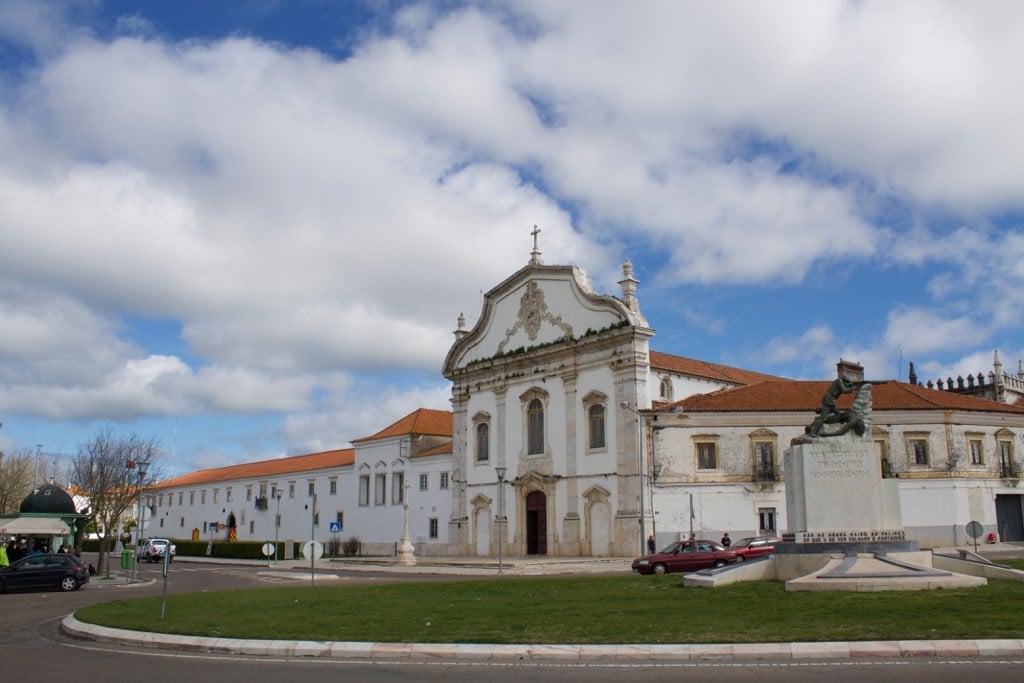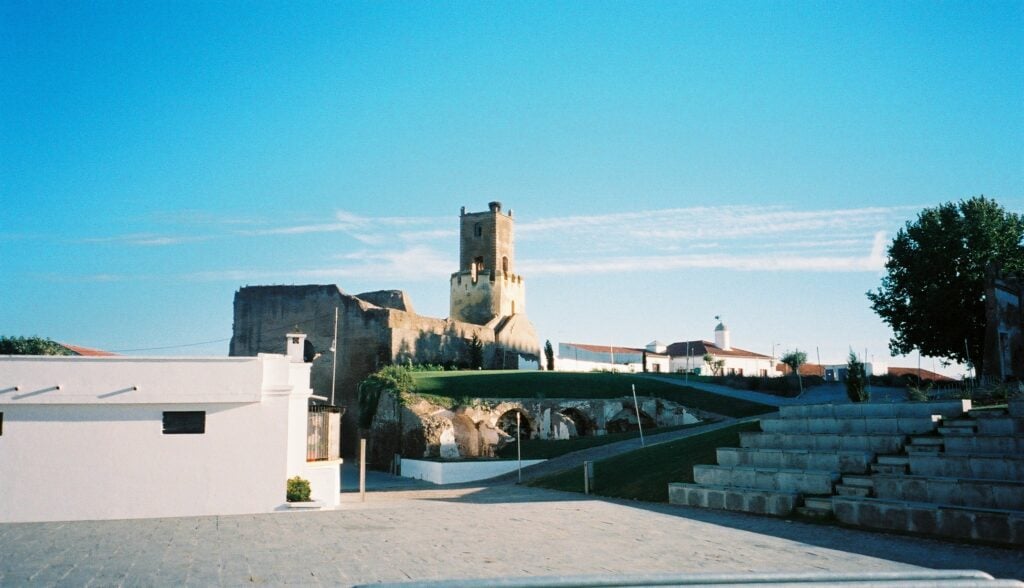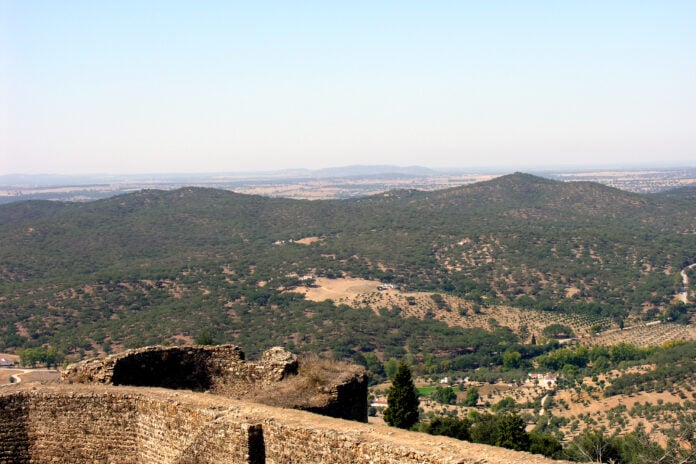We need to know how to interpret and distinguish legends from reality, as well as why these legends exist in the culture of each people and region. Portugal is a country extremely rich in stories, myths, and ancient legends, which inspire customs and superstitions. There are hundreds of Portuguese legends, tales, sayings, and popular beliefs that make our culture so rich and interesting.
Told in the evenings in the cold winters by our ancestors, from werewolves to fairies, witches to mermaids, ghosts and feathered souls to the miracles of saints, there isn’t a creature that our folklore doesn’t include, with the exception, perhaps, of vampires, because this isn’t a subject that is part of our legendary imagination.
But not all Portuguese legends are about creatures and monsters. Many of them reveal lands and people of courage, stories of revenge, justice, impossible loves, and perfect loves, others concern true events but with touches of imagination, probably to increase the dramatic or heroic charge of what really happened.
In fact, legends are such an important part of Portugal’s core that some even precede the country’s history, such as the legend of the Battle of Ourique. The legend goes that shortly before the battle, Afonso Henriques was visited by an old man, whom the man who would become Portugal’s first king four years later believed he had seen in his dreams.
The man gave him a prophetic revelation of victory. He also told him to leave the camp alone the following night, as soon as he heard the bell from the hermitage where the old man lived. The king did so.
It was then that a ray of light illuminated everything around him, allowing him to gradually make out the Sign of the Cross and Jesus Christ crucified. Overcome with emotion, he knelt down and heard the voice of the Lord, who promised him victory in this and other battles. The next day, Afonso Henriques won the battle.
According to legend, King Afonso Henriques then decided that the Portuguese flag would have five shields, or quinas, in a cross, representing the five vanquished kings and the five wounds of Christ.
There are so many myths that have shaped this country that it would be impossible and unfair to contain them all in a single article, so I’ve decided to create a series that will cross the country from north to south. In this article, we’ll visit the legends that have the south of Portugal as their backdrop. Let’s get to it!
Legend of the “Estremoços” or Estremoz

The story goes that many centuries ago, a man, a woman, and a child were traveling in a carriage across the Alentejo plains. Political hatred and wrongly convicted crimes had thrown this family onto the endless road, so they were looking for a new home in a faraway land. After such a long journey, the heat was biting and thirst was torturing them. The dust made their mouths chapped and their tongues rough.
They needed to rest, to escape the sun of that immense plain beyond the River Tagus. Suddenly a large, welcoming shade appeared in the distance, like an oasis in the desert, a lupine tree, the only shelter they could find on the way. The family pitched a tent and spent the night there.
The next morning, they were woken up by the owner of the land with his men, who complained about the family’s presence on his property without his permission. Hearing that the family was being persecuted, albeit unjustly, for crimes they hadn’t committed, the old landowner ordered them to leave immediately. Feeling insulted, but with a clear conscience, the strangers refused to leave the shelter of the lupine tree.
After a while, the father and mother found their daughter missing. She had gone to meet the old landowner. She told him that her parents were noble and honest people with the ability to turn that place into a beautiful village. Convinced by the girl’s intelligence, simplicity, and courage, the old landowner went to her parents and accepted her presence on his land and help.
Years later, the prosperous village was granted a charter by King Afonso III. There were so many suggestions for names for the land that the old owner decided to leave it up to the children to choose. In honor of the tree, he named it Estremoços (the name given to lupins at the time). Today it is known as the city of Estremoz and the lupin tree is depicted on the city’s coat of arms. Estremoz is also home to a really cool castle that you should definitely visit. So cool, in fact, that it even made our 19 Coolest Castles in the Alentejo list.
Legend of the Seamstress

This is one of the legends that has the most versions throughout Baixo Alentejo. One of them says that at the beginning of the 20th century, there was a seamstress in Baixo Alentejo who worked a lot, including on Sundays. For not respecting the holy day according to Catholic tradition, God punished her and made her wander the world of the living after her death.
Another version is that this seamstress had made a promise to St. Francis in life and never fulfilled it until she died. So she had to redeem herself by spending a period wandering before ascending to heaven. We don’t know why, but what we do know is that the seamstress became a penalized soul and wandered among the living, invisible.
Other versions tell us that once upon a time, a certain seamstress made a wedding dress for her daughter, but she died before the wedding. Filled with sadness, she continued to sew for eternity. It is also said that a certain seamstress fell seriously ill.
In order to recover her health, she promised to donate her sewing machine if she got better. However, as soon as she recovered, she forgot what she had promised, so when she died, as punishment, she was forced to continue sewing.
In all the versions, it is said to this day that in the silence of the night, the seamstress was heard sewing, and many heard the machine working, the scissors cutting, the thimble falling. However, this haunting didn’t frighten the people of Alentejo, because the seamstress was familiar. To learn more about this region and its people, check out our Alentejo Region Guide, or our love letter to the region, The Edge of Cultivation.
Legend of the Moura Salúquia

The coat of arms of the town of Moura – which is now a city – essentially shows a tower and a female figure lying in front of the fortification. The story goes that this woman, a Moor by the name of Salúquia (and daughter of the town’s governor), lived in this land during the Christian Reconquest and fell in love with a man called Bráfama, from the village of Aroche (about 50 km away, for those who are curious).
One day the Christians killed him, took the clothes of this beloved man and his entourage, and headed for the town that is now Moura. Salúquia, seeing them in the distance, thought it was Bráfama and ordered the city gates to be opened. Faced with this inattention, the Christian fighters easily entered the town and managed to conquer it without any difficulty.
Then, realizing what she had caused, in the midst of her misfortune this Moor climbed the castle tower and committed suicide. The memory of the beautiful Moor, who committed suicide out of love, lingered on in the local culture, and so the town changed its Islamic name, which seems to have been Al-Manijah, to the current one.
But then… why was the town named “Moura” and not “Salúquia”? Since, given the context of this whole legend, it can be inferred that Christians changed the name, it is likely that the original name was gradually lost over time, or that they were unaware of the name of the deceased, but wanted to pay homage to her for the precious “help” she gave in conquering the place.
This second hypothesis is certainly possible if we are to believe the events surrounding this legend of the Moura Salúquia, which continues to live on today in the memory of the city’s inhabitants.
At the same time, the presentation of this main character as an Islamic woman who also loved a practitioner of the same religion is curious. In many other legends of Moors and Christians, it is much more common for them to fall in love with knights of the other religion, even ending up betraying their city for love.
Here, the town is betrayed, yes, but almost accidentally by Salúquia, and she is soon ready to pay the price for her action (some versions even add that all this took place on the day she thought she was going to get married, which further emphasizes her suffering).
Legend of the Almond Tree Blossoms

A long time ago, before Portugal existed and when the Algarve belonged to the Arabs, there was a king who had never known defeat. One day, among the prisoners of a battle, he saw the beautiful Gilda, a blonde princess with blue eyes and a haughty bearing. She was enchanting and everyone called her the “Beauty of the North”.
Impressed, the Moorish king gave him his freedom. He gradually won her heart and asked for her hand in marriage. Despite the festivities that took place on this occasion, Gilda seemed to be very sad. The princess suffered from nostalgia for not seeing the fields covered in snow, as in her homeland.
Afraid of losing his beloved wife, the king had a good idea: he ordered large plantations of almond trees to be planted throughout the Algarve, and by early spring they were all covered in blossoms. The Moorish king took Gilda to the balcony of the castle’s highest tower to discover the landscape together.
The queen clapped her hands and shouted for joy when she saw the whole land covered in a white blanket, which she thought was snow. Seeing this indescribable sight completely cured her homesickness.
The couple had an intense love affair, waiting year after year for spring, which brought the spectacle of almond trees in bloom.
The Algarve is a beautiful, and very well-known region, full of surprises. To make sure you don’t miss a thing, check out our Algarve Region Guide.
Legend of Praia da Rocha

The story goes that, many, many years ago, a beautiful mermaid was passing along the Algarve coast and, tired as she was, decided to rest on the rocks that rested there.
He fell asleep. As the sun rose, he smiled slightly. His eyes slowly open to the sound of the waves crashing on the rocks and he begins to glimpse a shadow in front of him.
In her distress, her eyes open wider and she notices that he is a very old man, with a long, white beard and wide, long white robes. He was, as he told the beautiful mermaid, the Fisherman, son of the Sea. So the Fisherman told the mermaid that he didn’t want her to leave, he wanted her to stay with him so that they could get married, because she was, without a doubt, the most beautiful being he had ever seen.
The fisherman continued to woo the beautiful mermaid. She, very attentive, was already inclined to accept the white-bearded man’s invitation. She didn’t do it straight away, but she didn’t do it afterward either. Another old man appeared from the top of the rocks, this one with a long brown beard and wide, long robes, as brown as his beard. He was a Serrano.
He too wanted to marry the mermaid and promised her the trees and flowers, the hills and valleys, the shadows, the smell of wet earth, in short… Worlds and worlds! For his part, the Fisherman stole Serrano’s airtime and promised the beautiful mermaid the waves, the corals, the beauty of the fish, the reflection of the sun in the ocean water… Then it was the Serrano’s turn. Then it was the fisherman’s turn again.
And so it went for months on end, without the mermaid deciding. And it lasted so long, but so long that the mermaid turned into the beautiful sand of Praia da Rocha and the two old men married each other.
Last Thoughts
Portuguese legends are not just stories from the past; they are threads woven into the tapestry of national identity, shaping world views and passing on values from generation to generation. Each tale, such as the epic Battle of Ourique, not only feeds the collective imagination but also influences national symbols, such as the chevrons on the flag.
The south of Portugal, as the last region to be reconquered from the Muslims, still retains many Arab influences, something that is easy to understand by learning about many of the legends that are passed down from generation to generation.
Just as Tolkien believed, these legends are not just fiction; they are reflections of deep truths that resonate through the centuries. The richness of Portuguese culture lies not only in its documented history but in the narratives that dwell in the hearts of the people, continuing to inspire and enchant each generation that delves into these timeless stories.
Thus, Portuguese legends remain not only as accounts of the past but as windows to understanding the soul of a people and the essence of their rich heritage.
Make sure you explore the country through its legends in these other articles: Northern Portugal’s Folk Tales, Central Portugal’s Folk Tales, Lisbon Region’s Folk Tales, and Portuguese Islands’ Folk Tales.


